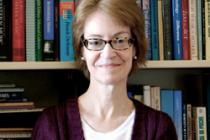To: Colleagues
From: Bonnie Thornton Dill, Dean
Date: September 13, 2016
Re: 2016-17 Leadership Appointments
I am pleased to announce the following leadership appointments within the College of Arts and Humanities:
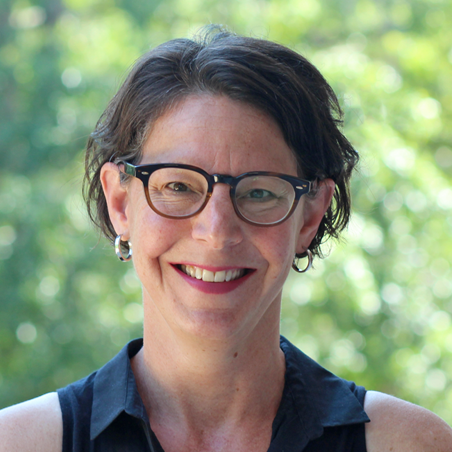 Amanda Bailey is serving as chair of the Department of English, effective July 1, 2016.
Amanda Bailey is serving as chair of the Department of English, effective July 1, 2016.
Amanda Bailey specializes in Shakespeare, early modern legal studies, political theory, economic history and the history of masculinity in literature. Her most recent book, “Of Bondage: Debt, Property and Personhood in Early Modern England,” examines dramatic literature’s contribution to the developing narrative of debt bondage, shedding new light on the conceptions of indentured servitude and slavery. In addition to publishing in journals such as Shakespeare Quarterly, English Literary Renaissance and Renaissance Drama, she has also co-edited two volumes, “Masculinity And The Metropolis of Vice, 1550-1650” and “Affect Theory, Early Modern Texts.” Her current book project, “A Natural History of Politics: Shakespeare, Sympathy and the Stars,” identifies affinity as foundational to ideas about political agency as based on affect rather than rights.
Bailey joined the faculty in the English department in 2012, coming to us from the University of Connecticut.
She earned her doctorate in English literature from the University of Michigan.
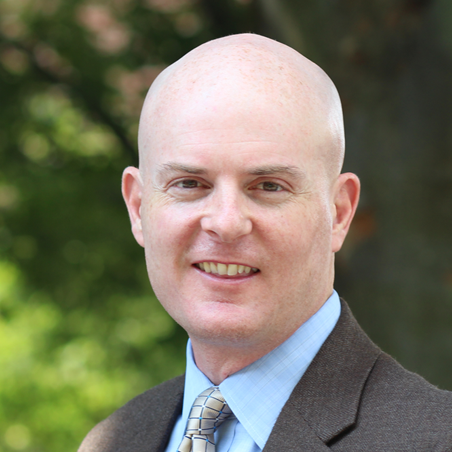 David Ellis is serving as executive director of the National Foreign Language Center (NFLC), effective September 7, 2016.
David Ellis is serving as executive director of the National Foreign Language Center (NFLC), effective September 7, 2016.
Ellis has nearly 20 years of experience in foreign language teaching, training and curriculum design and is currently focused on developing a model of learner persistence and clarifying the role of technology in foreign language education. He will provide overall leadership and direction to the center, serving as the principal investigator for the Center’s federally-funded STARTALK program, which is designed to increase national capacity in critical-need languages. He is also program manager of the Analysis and Language Learning contract, a federally-funded project to develop self-guided, web-based learning materials in over 100 critical-need languages.
Ellis joined the NFLC in 2006 after leaving the Defense Language Institute in Monterey, CA, where he was a faculty developer. He previously served as deputy director and interim director.
He earned his doctorate in second language acquisition from the University of Maryland.
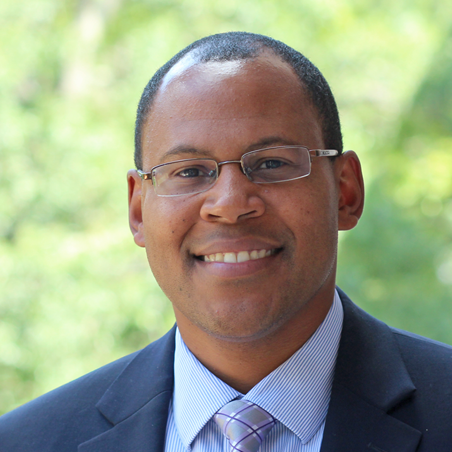 Jason Geary is serving as director of the School of Music, effective July 1, 2016.
Jason Geary is serving as director of the School of Music, effective July 1, 2016.
A respected musicologist and conservatory-trained pianist, Geary has focused his research on the music of nineteenth-century Germany and its role in European cultural and intellectual history. In addition to several articles and book chapters, he is author of “The Politics of Appropriation: German Romantic Music and the Ancient Greek Legacy,” which explores the reception of ancient Greece as it relates to German music and culture of the 1800s. His latest book project investigates the theme of childhood in nineteenth-century music amid changing ideas about children that emerged during the late Enlightenment. His work has been recognized by, among other honors, a Fulbright grant and a fellowship at the Institute for Advanced Study in Princeton.
As a young pianist, he won competitions that resulted in performances with the San Francisco Conservatory Orchestra, the National Repertory Orchestra, and at New York’s Alice Tully Hall.
Geary joins UMD after a 12-year career at the University of Michigan School of Music, Theatre & Dance, where he served as associate professor and associate dean for graduate studies, equity and inclusion.
He earned his doctorate in musicology from Yale University.
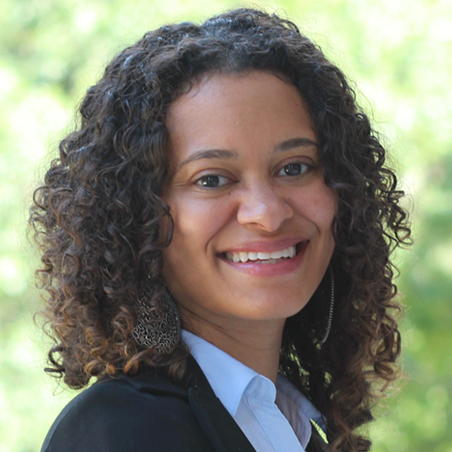 Catherine Knight Steele is serving as the inaugural director of the Andrew W. Mellon Foundation funded “Synergies Among Digital Humanities and African American History and Culture” initiative, effective August 15, 2016.
Catherine Knight Steele is serving as the inaugural director of the Andrew W. Mellon Foundation funded “Synergies Among Digital Humanities and African American History and Culture” initiative, effective August 15, 2016.
Steele is an expert in digital media, online communication and race. Her research examines the representation of marginalized communities in the media and how those populations use online technology to create spaces of community and resistance. Her current project focuses on digital black feminism and how the technical and imaginative possibilities of new media are shaping online black feminist discourse.
Steele comes to UMD from Colorado State University, where where she was an assistant professor of journalism and media communication.
She earned her doctorate in communication from the University of Illinois at Chicago.
Please join me in congratulating our new leaders in the College of Arts and Humanities. I would also like to take this opportunity to offer my warm thanks to the former directors and chairs: former Director of the School of Music Robert “Bob” Gibson, who will continue teaching, performing and composing, following a research leave; and former Chair of the Department of English Kent Cartwright, who will continue his research in medieval and renaissance literature.



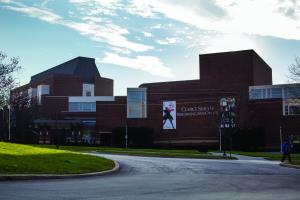

 Amanda Bailey is serving as chair of the Department of English, effective July 1, 2016.
Amanda Bailey is serving as chair of the Department of English, effective July 1, 2016.
 David Ellis is serving as executive director of the National Foreign Language Center (NFLC), effective September 7, 2016.
David Ellis is serving as executive director of the National Foreign Language Center (NFLC), effective September 7, 2016.
 Jason Geary is serving as director of the School of Music, effective July 1, 2016.
Jason Geary is serving as director of the School of Music, effective July 1, 2016.
 Catherine Knight Steele is serving as the inaugural director of the Andrew W. Mellon Foundation funded “Synergies Among Digital Humanities and African American History and Culture” initiative, effective August 15, 2016.
Catherine Knight Steele is serving as the inaugural director of the Andrew W. Mellon Foundation funded “Synergies Among Digital Humanities and African American History and Culture” initiative, effective August 15, 2016.

